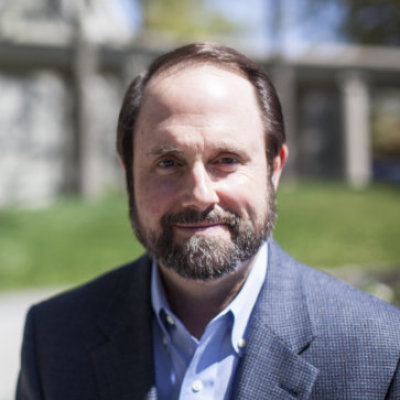Preparing for a threat that seeks to replace Christianity

The American media continues to cover President Joe Biden’s Wednesday night address to Congress and the reactions to it. Meanwhile, another politician is making news in ways that are deeply encouraging.
Scott Morrison is the prime minister of Australia and a very public Christian. He spoke recently to the Australian Christian Churches’ national conference, where he shared his personal faith and sense of call to his position.
The Guardian reports that “Morrison is far from alone among Australian prime ministers either in holding religious beliefs or in talking publicly about them. But he is unusual in modern times in expressing such a direct sense of divine calling to the office of prime minister.”
The article takes a decidedly skeptical view of this “divine calling.” This is unsurprising, since the prime minister’s holistic faith conflicts directly with the narrative that now dominates our culture.
A threat 'the church has not encountered before'
One of the transformative consequences of stepping away from our daily lives is an enlarged perspective when we return. Like a helicopter sightseeing tour that shows us a beautiful location from a higher view, retreating from the routine can help us see ourselves more clearly from God’s perspective.
One of the clear messages I sensed from God in recent days is that His people must prepare more urgently than ever for the challenges that are coming. We are in the early stages of a movement the church has never faced before, one which threatens us in ways that are now becoming clearer.
Sociologist Philip Rieff describes the era when the Christian movement began as the “first culture.” It was dominated by a pantheon of gods whose followers were content with their religion and not missionary toward the larger world. According to Rieff, the Christian movement sparked a monotheistic and evangelistic “second culture” which swept away the “first culture.”
Now we are in what Rieff calls the “third culture,” which Australian Pastor Stephen McAlpine describes as “hermetically sealed off from anything transcendent.” It “recognizes only horizontal identity constructions, not vertical ones. Here is where meaning is determined, and here is where authority lies. It is ours to construct — and deconstruct.”
McAlpine adds: “This third culture is highly evangelistic and actively hostile to second-culture values.” For example, it considers sexual “freedom” and “authenticity” to be vital to personal and social flourishing. Biblical morality is therefore seen as dangerous to society and potentially deadly to LGBTQ individuals. The same vitriolic stance is taken with regard to abortion, euthanasia, or any other personal “freedoms” that are “threatened” by biblical faith.
According to McAlpine, this is a “new religion” and rival gospel “the church has not encountered before.” It seeks nothing less than to replace Christianity with its secular vision for a better future.
'My soul pants for you, O God'
What seems to be very bad news is actually the shadowside of very good news.
Every human being is made in God’s image for personal relationship with our Maker (cf. Genesis 1:27). Nothing in secular culture can fill this “God-shaped emptiness” that Pascal described. The further our society moves from biblical truth, the more people will hunger for biblical truth.
Therein lies our opportunity and our challenge.
Frederick Buechner noted, “The place God calls you to is the place where your deep gladness and the world’s deep hunger meet.” “The world’s deep hunger” is to hear from God. Not just about Him — from Him. The storms our culture faces are so grave, we cannot navigate them without divine leadership, provision, and protection.
You and I are conduits through whom our Lord speaks to our world. But we cannot give what we do not have. We cannot speak a word from God unless we hear a word from God. To meet “the world’s deep hunger,” we must first meet with God.
Our “deep gladness” comes from such intimacy as well: “As a deer pants for flowing streams, so pants my soul for you, O God” (Psalm 42:1). David testified: “O God, you are my God; earnestly I seek you; my soul thirsts for you; my flesh faints for you, as in a dry and weary land where there is no water” (Psalm 63:1).
More than at any time in my lifetime, evangelical Christians need to follow David’s example today. As we face the cultural challenges that lie ahead, we desperately need a transformative, empowering connection with our Lord. I plan to say more about this connection next week; for today, let’s close by choosing to make it our first priority as the people of God.
'I don’t have time to sharpen my ax'
Ecclesiastes 10 offers this remarkable insight: “If the iron is blunt, and one does not sharpen the edge, he must use more strength, but wisdom helps one to succeed” (v. 10).
The story is told of a newly hired lumberjack who felled more trees on his first day than anyone else. By the fourth day, however, his output had fallen so far that his supervisor asked him what was wrong.
The man said, “I don’t understand. I’m working even harder than before but cutting less timber.” The supervisor asked the lumberjack how often he sharpened his ax. He replied, “I have too many trees to cut — I don’t have time to sharpen my ax.”
When last did you sharpen your “ax” with God? When next will you?
Originally published at the Denison Forum
Adapted from Dr. Jim Denison’s daily cultural commentary at www.denisonforum.org. Jim Denison, Ph.D., is a cultural apologist, building a bridge between faith and culture by engaging contemporary issues with biblical truth. He founded the Denison Forum on Truth and Culture in February 2009 and is the author of seven books, including “Radical Islam: What You Need to Know.” For more information on the Denison Forum, visit www.denisonforum.org. To connect with Dr. Denison in social media, visit www.twitter.com/jimdenison or www.facebook.com/denisonforum. Original source: www.denisonforum.org.





















